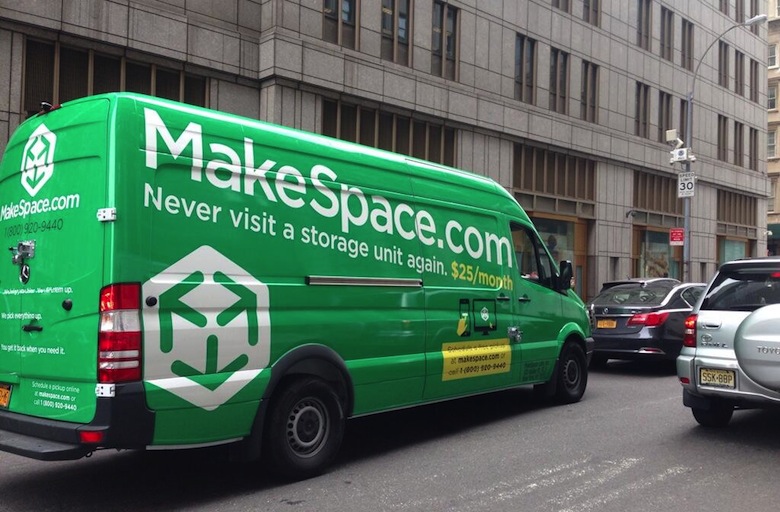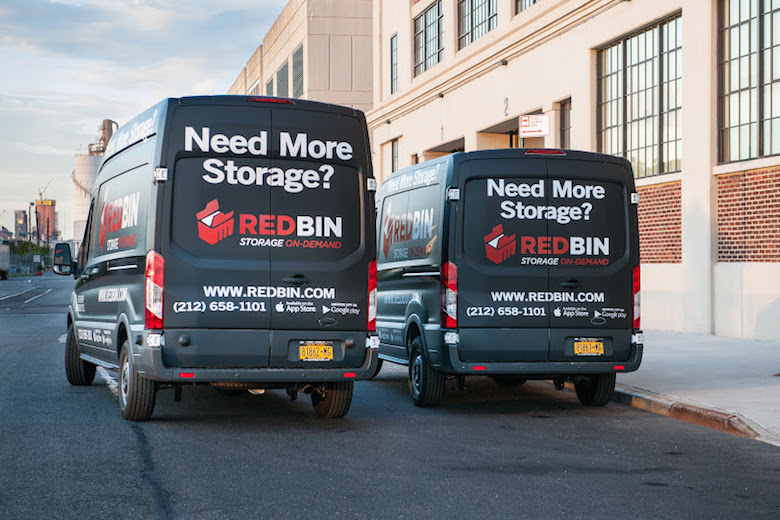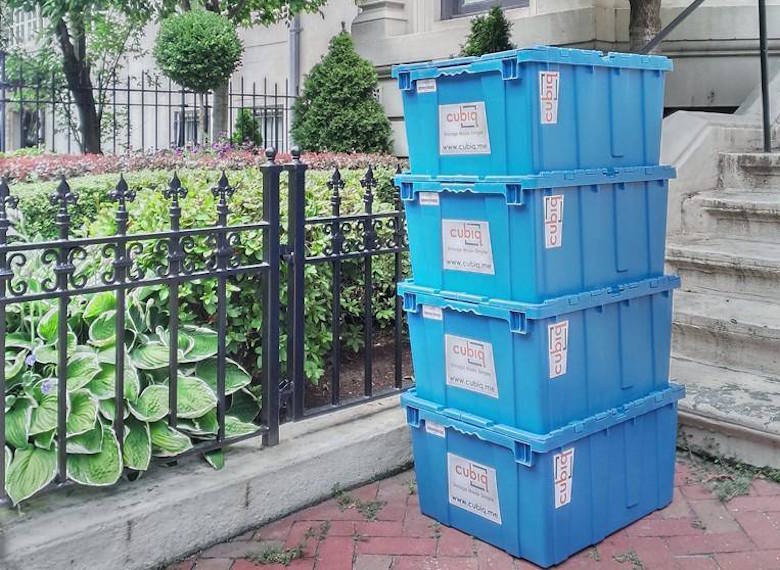What started out as a smattering of trendy “valet storage” firms in urban areas across the country has turned into an increasingly competitive industry as more players jump into the new niche market.
The small moving-and-storage companies – usually technology-driven startups offering home pickup and return delivery of stored items – are now spreading across metropolitan and even regional boundaries to take on rivals and to establish larger market footprints.
Eye on NYC
Last month, Clutter — a Los Angeles-based moving-and-storage firm founded two years ago and backed with $3.3 million in venture capital – started operations in the New York-New Jersey area in the hope of tapping into the lucrative East Coast market.
“New York is the biggest market in the world for storage,” said Ari Mir, a co-founder and chief marketing officer at Clutter.
“It’s like the old saying about New York: If you can make it there, you can make it anywhere,” Mir said.
With its cross-continental jump into the Big Apple, Clutter is joining an increasingly active market for new-style storage companies using technological innovations to provide solutions to space-strapped and often car-less residents. (Clutter’s motto plastered on its web site is: “We Pick It Up. We Store It. We Bring It Back.”)
Crowded market
Startups such as MakeSpace and Box Butler are already mining the New York storage market.
Founded in 2013, MakeSpace itself has already expanded into Washington D.C. and Chicago – with plans for future geographic expansions as well. Currently, MakeSpace is backed by more than $10 million from various investors, among them Upfront Ventures, Lowercase Capital, Founders Fund, entertainer-turned-business-mogul Ashton Kutcher, and New York Knicks star Carmelo Anthony, according to company officials.
“From the beginning, we have aimed to revolutionize the antiquated $24 billion storage industry in the United States,” said Rahul Gandhi, co-founder of MakeSpace. “We are focused on growth and expansion within the United States at this time.”
More recently a traditional self-storage company, Oakdale Self-Storage on Long Island, earlier this year founded Red Bin Technology Inc. in Brooklyn, offering pick-up-and-return storage services to folks in New York City. Red Bin now leases about 50,000 square feet of storage space (pictured at top) at an old US Navy industrial building along the Brooklyn waterfront.
New kid on the block
Tom Anderson, president and founder of Red Bin, said he started his new company for two reasons: Firstly, he couldn’t expand under the traditional self-storage model without purchasing expensive properties in New York. Second, he believes the general trend within the storage industry is toward offering some sort of pick-up-and-return services for storage customers.
“The other bricks-and-mortar guys (in storage) are going to wake up and realize they have to get into this line of the business,” said Anderson. “The taxi companies reacted late to the rise of Uber, which is now eating their lunch. The same thing is happening in the self-storage business with all the new players. You need to react to changes in the market.”
Red Bin is pushing “bin storage” – and it charges $6.25 per month for each 3-cubic-foot bin. Though Red Bin only started its new storage business last month, it’s already filled up 5,000 square feet of space at its leased Brooklyn facility – and Anderson said his current leased space could be filled within the year. Red Bin has the option to lease more space at the facility.
In a twist, Red Bin also provides old-fashioned self-storage services at its leased facility, making Red Bin a “hybrid” storage company, Anderson said.
Defining the segment
So what exactly is a “valet storage” company?
First off, not all the young startups even like the term “valet storage,” believing it conveys a snobby image that excludes many non-affluent customers. Other nicknames for the new-style storage companies include “bin storage,” “on-demand storage,” “boutique storage” and “concierge storage.”
In addition, not all the startups provide the exact same type of services. Some will only collect items pre-packed in bins or boxes. Others won’t take any item that can’t be physically picked up by an individual mover. The also all have different fee structures.
The young firms can’t even agree on whether they’re direct competitors with traditional self-storage companies – or whether their services complement those of traditional self-storage companies.
Their differing and fast-changing business models make it difficult to tell which of the startup companies will come out on top in the end. Indeed, many firm owners wouldn’t share how many vans they own or how much square feet of warehouse space they lease, out of fear it might help their upstart rivals.
But the firms all do share a few traits: Using small fleets of vans and trucks, they’re willing to come right to customers homes, haul away items, store them and then return them back to customers upon request. They also boast about cutting-edge web or mobile applications that make it easier to request and track services.

Clutter is one of several companies using mobile technology to make storage more convenient for customers.
Clutter cleans up
The young firms are convinced that there’s a huge storage market for those who don’t want to rent moving vans and store items themselves at self-storage facilities. The firms say there’s no single customer demographic category they’re focusing on, but they note many customers live in urban areas, don’t own cars and tend to be young.
Clutter’s Ari Mir says his company is going after all segments of the storage market, including areas dominated by traditional self-storage companies. “We do everything,” said Mir of Clutter’s services.
Clutter’s most popular service is its so-called “Garage Space” plan – or the rental of a 9-foot by 9-foot storage unit for $175 a month, or roughly equivalent to what traditional self-storage firms charge. But the real savings for Clutter customers is that the company won’t charge for pick-ups or return delivery of items.
“We’re going straight for the jugular,” Mir said of Clutter competing against traditional self-storage companies.
Clutter, which employs about 120 people, also has an “Items Plan” – in which it charges a flat fee of $7 per month for moving and storing any single item, whether it’s a golf-club bag or a bin stuffed with winter clothes. As long as a Clutter mover can physically pick up an item, the cost remains the same: $7.
Clutter has a total of five different move-and-storage plans at varying prices.
Beyond the Big Apple
In the Northeast, the new storage battle isn’t confined to just New York.
In Boston, a number of new startups are vying against each other, including Cubiq Inc. (founded in 2014) and Fetch Storage (2010).
Michael Cappelletti, founder and chief executive at Cubiq, said his company touts itself as a “personal storage concierge.” Cubiq offers customers four different “cube” sizes for storage, with the most basic being 24-by-19.5-by-12.5 inches and costing $10 per month for storage. The average customer ends up storing items in eight cubes, costing them a discounted $59 per month, he said.
Pick-ups are free and, depending on the size of accounts, customers can earn extra “delivery credits” for deliveries back to homes of customers, who can order services via Cubiq’s web-based apps.
“I love this intersection between high-tech and low-tech,” Cappelletti said of his firm’s services and operations.
Into the mainstream
Brij Patel, chief executive and co-founder of Fetch Storage in Boston, said his company recently signed a strategic partnership and investment deal with MaidPro, the home-cleaning franchise company. Right now, Fetch Storage is based only in Boston, but it has plans to expand to other US markets, Patel said.
As long as items are packed securely in advance, Fetch will move and store items in bins or cardboard boxes. Fetch will also move and store furniture.
Charging by the cubic feet of space taken up by stored items, Fetch’s services cost a typical customer about $70 per month, less than what’s charged by traditional self-storage firms, especially when Fetch’s free pickup and delivery services are thrown in, Patel said.
A few years ago, firms like Fetch Storage were viewed as “novel,” said Patel.
“But today there’s been a lot of activity in this space,” he said. “This model (of storage) is now finding its way into the mainstream.”










